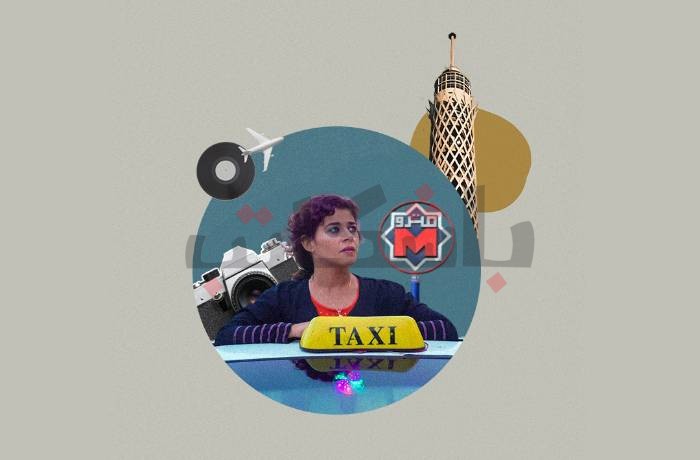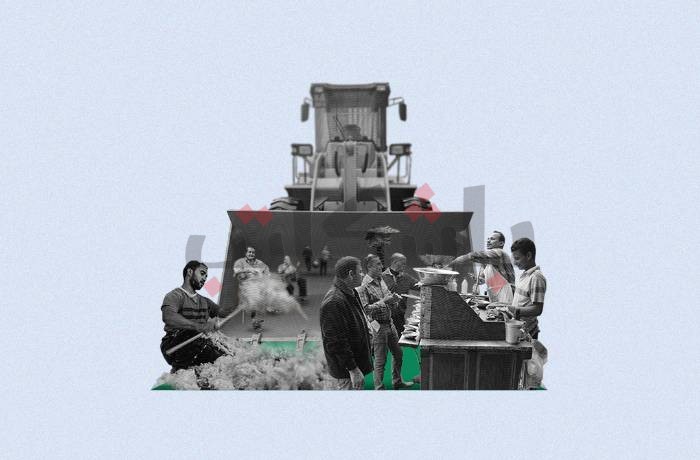In the movie "Outer Night”, the characters "Toto" acted by Mona Hala, "Mo/Jalal" the character acted by Karim Qasim, and "Mustafa" the taxi driver” acted by Sherif El Desouky, are in the first scene together in the taxi. "Toto" asks, "Where are you from, Jaljal?", Mostafa responds, "He is from Maadi, and I'm from Hadayek, and you're from Dar El- Salaam, meaning that there is just one station between each area of our residency." Toto sarcastically replies, "Look, Subhan Allah, just one metro station and see how much difference there is."
"Toto," "Mo/Jalal," and "Mustafa" navigate through the events of the film, directed by Ahmed Abdullah and written by Sherif Al-Alfy, each from their own unique worlds. These worlds are separated not just by a single metro station, but by a few streets, as if Cairo is a collection of worlds that have come together to form the bustling city. Its citizens move swiftly through it, and sometimes, their souls seem to be running in an unfinished marathon.
I move through Cairo like the metro; at every street or bridge, I always escape from each street to enter a narrower one. I rid myself of the metro crowd with the possibilities of facing death on the Ring Road. I become old as soon as I get in a public bus, and my feet find relief with just a request for a ride through the famous rides booking apps. A stranger takes me inside his car, and we navigate through the strangest streets.
It's strange how we lose logic within this city, how we encounter a large number of people daily and still feel a sense of alienation. Why don't we consider the possibility that among them could be our future life partner, who might become a father or mother to our children? And why do our children find themselves living without reason in this city, making their fate similar to our daily fate? As soon as I enter the metro car and think, why am I here? Why do I live like that? And they live within a vast circle of existential questions, completing stations on the line and leaving others unfinished, building their beautiful memories within transportation that invades their privacy and spaces. They listen to Beethoven while battling on the Ring Road, only to find an empty seat inside a "microbus."
I move around Cairo like the Ring Road, as the Ring Road has an entrance in every neighborhood. In each neighborhood, I have a friend—whether male or female. I can enjoy time with friends in Maadi and Tagamoa, laugh heartily with friends in Dar El-Salaam, Azbet el Nakhel, and Helwan. I support my friends who migrated from other governorates, seekers of the dream of Cairo and independence, after their spirits entered the marathon.
I am a daughter of the city, a resident of Dar El-Salaam. Only a street separates me from Maadi. I can buy my clothes in Dar El-Salaam and sit in a café in Maadi amid the trees and stunning buildings. In front of my house stands a luxurious tower that obscures my view of the Nile Corniche, reaching up to 20 floors. However, it complements the aesthetic of the "luxurious" Corniche and behind it lies another world, just a few meters away.
When I was a child and looked at this tower, I thought that I had the right to be in a beautiful place, to see the Nile. However, I was blessed with a view of my neighbors' windows. I could greet them by hand from the window, and sometimes I would join in their conversations, getting to know the dimensions of their living space.
In the book "Thirty Years in the Company of Naguib Mahfouz" by the author Mahmoud El Shanawani, I knew about the daily life and journey of Naguib Mahfouz through the streets of Cairo. I discovered how he created for himself a geographical space that fostered creativity and inspiration. Although I read it in 2018, over time, I have come to understand the nature of the creativity that emerges from Cairo – creativity amidst the hustle and bustle of diverse worlds. It is a distinct form of creativity, leading me to confess that Cairo is both the source of sorrow and inspiration.
At times, I am filled with the feeling that I will leave Cairo one day. I experience both sadness and joy simultaneously, and this becomes my relationship with Cairo – a mix of sorrow and happiness, a violation of personal space, and a sense of individuality. However, when I eventually leave, I will continue to imagine the children of Cairo emerging from their mothers' wombs, running like all the children and sons of Cairo.
At the end of the movie, "Toto" emerges from the taxi's sunroof, listening to her favorite song "Ya Layali" by the singer Sherine Abdel-Wahab. She gazes at the streets of Cairo with a mix of love and illusion, as if she is watching a tragicomedy movie.

